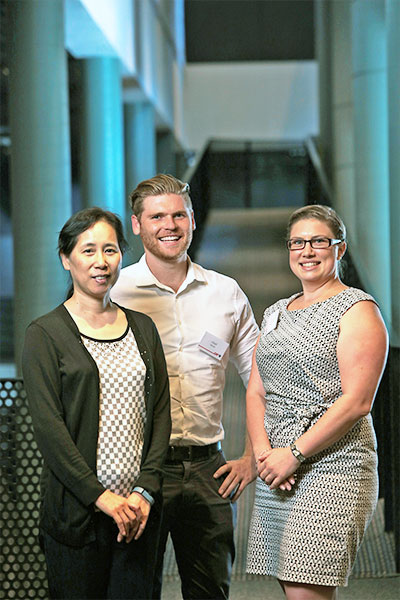Australian ‘nouse’ develops drone anti-collision system
A NON-GPS sensor system that will help drones and unmanned aerial vehicles (UAVs) avoid collisions is one of the most promising projects in the latest round of Australian science agency CSIRO’s ON Accelerator program.
The project gets away from global positioning systems to create an onboard sensor system that will allow drones and UAVs o fly autonomously near infrastructure and in GPS-free environments. The project has the potential to rapidly advance the booming UAV and drone markets into new areas such as parcel delivery services, as recently announced by Australia Post.
Eleven teams of scientists and researchers from CSIRO and Australian universities have been selected to take part in the next round of CSIRO’s ON Accelerator, a program set out to boost Australia’s innovation performance by accelerating big science and technology ideas into commercially viable opportunities. 
The teams were selected on the potential of their ideas to have real positive impact on Australian industry, economy, environment and future, among other selection criteria.
Other winning ideas include a natural feed additive for livestock that could improve productivity by 10 percent and reduce methane emissions by up to 90 percent. There is also a development in facial-recognition technology that could provide accurate, real-time pain assessment for health patients who cannot verbally communicate.
For the first time CSIRO welcomed Australian university applications into the program, chief executive Larry Marshall said, recognising the importance of collaboration and engagement between research sectors in driving Australia’s innovation agenda.
“CSIRO is focussed on helping Australia navigate the changes we face, from digital disruption to environmental impact,” Dr Marshall said. “We need to translate more of our nation’s excellent science into solutions that build a better future, and the ON Accelerator is the perfect way to teach researchers and teams how to do just that.”
Out of eight university applications Curtin University and a combined team from Macquarie University, University of Adelaide and ANU were successful in securing two wildcard spots in the next Accelerator.
“As a collaborative and industry-engaged university we are excited about continuing to build integration across CSIRO, industry and university sectors,” Macquarie University deputy vice-chancellor for the Research division, Sakkie Pretorius said.
“The CSIRO ON Accelerator provides a framework through which we can extend previous collaborations,” Professor Pretorius said.
“It also allows us to look to the future, to generating impact from new future-focused areas in which CSIRO and Macquarie have developed complementary strengths.”
From July this year, the ON Accelerator program will be expanded nationally to include all other publically funded research organisations, as well as Australian universities. It is now part of the Federal Government's National Innovation and Science Agenda (NISA).
Collaboration between research sectors is one of the key pillars of CSIRO’s 2020 Strategy, and the ON Accelerator program strongly supports CSIRO’s mandate to use science for a purpose.
“With the ON Accelerator program we can focus on finding viable opportunities that will not only create economic impact, but provide real social and environmental benefits for Australia,” CSIRO executive manager for innovation Liza Noonan said. 
“We’re thrilled to be working collaboratively with other research organisations in Australia to lift our nation's innovation performance.”
The current round of CSIRO's ON Accelerator program completes in late July.
The 11 winning teams were selected by industry mentors and a judging panel including Dr Cathy Foley, from a group of 25 teams that participated in a challenging and competitive two-day selection Bootcamp held on April 6-7 at Powerhouse Museum Sydney.
ends

